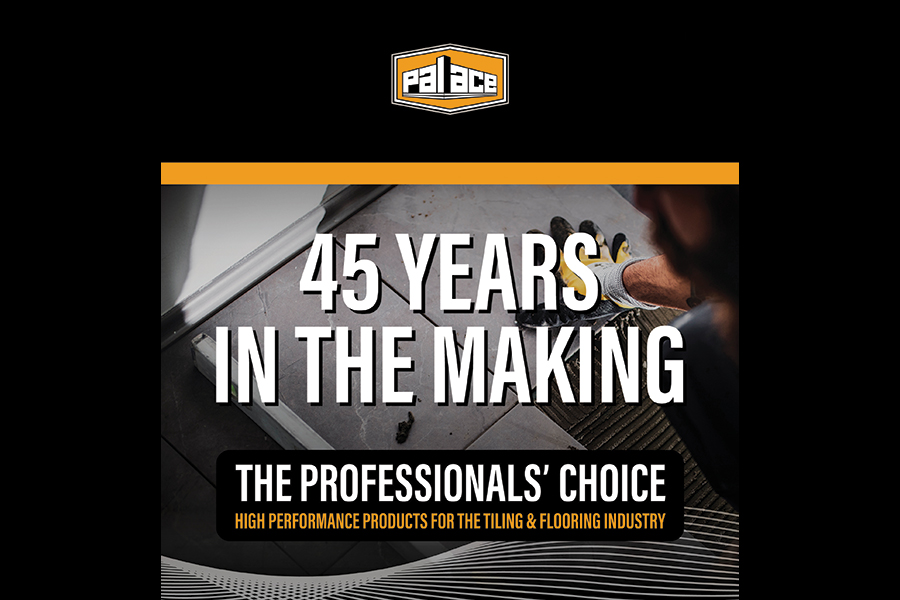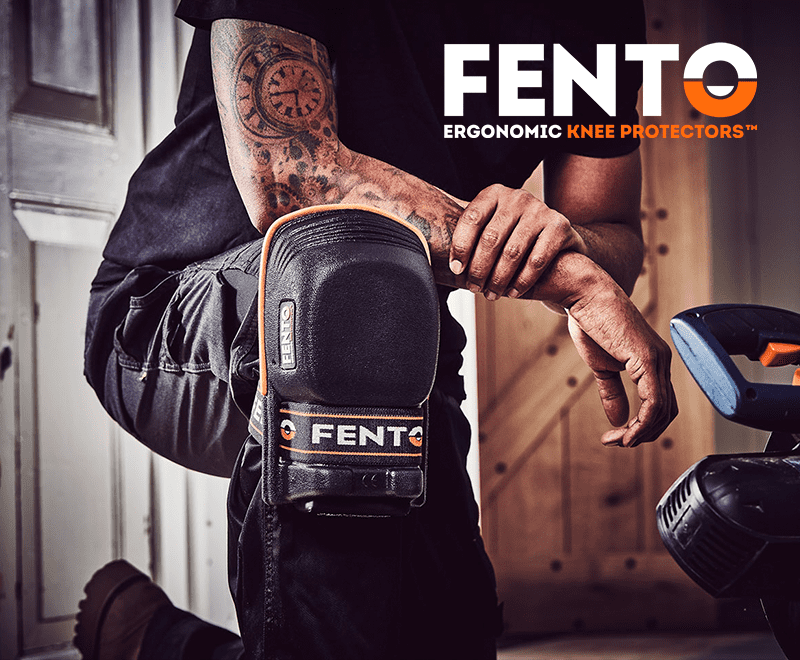This year, Palace Chemicals, one of the UK tiling industry’s stalwart manufacturers of adhesives, grouts and other products, is celebrating its 45th anniversary. To mark the occasion, TSJ sat down with founder Charlie Clapham to speak about the company’s history, its highlights and challenges, as well as its plans for the future.
When Charlie left school at 15 years old, he received one piece of advice from his mum regarding work: “Whatever you do, make sure it’s something you enjoy.” Today, some 60 years later, the founder and managing director of Palace Chemicals can happily say he’s followed that advice throughout his career – and sold a lot of adhesives along the way!
The early years
Charlie joined the construction industry in the early 70s as a salesman for a building chemicals manufacturer in Cumbria. Over the next several years, he gained experience and knowledge of the industry, but while he enjoyed the role, its potential was clearly limited. “I thought to myself: am I ever going to have the big fast car like the boss drives?” he says. “And the answer was, most likely, no.” So, along with three other colleagues (one from Liverpool, one from Grimsby and one from Nottingham) the four of them left that company to start Palace Chemicals in 1978. “We were close pals. We all had different skills we were bringing to the business, and we decided to set up here in Liverpool.”
In the early days of Palace, both the company and the industry looked very different. Indeed, for some time following its incorporation, the company focused far more on the general builder’s market than it did the tiling sector. For example, throughout the late 70s to the late 90s, a significant proportion of Palace’s business was in the remedial market, supplying products for damp proofing and timber treatment industry. This side of the business was very vibrant, until around 2000, when the company changed direction as Charlie said “There were only so many properties that needed damp proofing”!
Fortunately, while that business segment began to decline, the tiling market had started to pick up. With the growing accessibility of holidays to places like Spain, Portugal and Italy (where tiled interiors were much more common) Britons increasingly wanted to use ceramics for their own floors and walls, driving significant growth in the sector. “That’s where our business changed from direct-to-builders to focusing more on the tiling and flooring market, and that has grown exponentially in the last 20, 25 years.”
Although the company’s target market has shifted over the years, its guiding principles for product development haven’t, Whether the company is selling to the professional builder or the tile fixer: “We like to think our quality comes first, because when you’re dealing with the tradesman, the tradesman is very discerning when it comes to the quality of the product.”
A growing industry
Throughout Palace Chemicals’ history, the market has gone through many changes, and the company has always strived to adapt alongside it. In recent years, for example, tile formats have grown significantly, meaning ready mixed tile adhesives, which were traditionally a huge part of Palace’s offering, are now less in demand. While the company still produces a lot of these adhesives, its offering of powdered adhesives has also grown to cater to the larger format tiles.
Regulatory standards and technical specifications have also developed substantially since 1978, reflecting the industry’s growing prioritisation of both efficacy and safety. Palace has strictly ensured its products remain compliant though, even as standards become more and more stringent. “We’ve got Kitemarks where we need Kitemarks, where there’s a British Standard we comply with British Standard, and where there’s an EU Standard we comply with the EU Standard, as an industry, we’ve all looked to take standards forward, and we continue to do that.”
One area in which requirements are rapidly changing is sustainability, and despite its long history, Palace is anything but complacent regarding the big changes the construction industry needs to make. “We’re looking to use sustainable materials wherever we possibly can, we continue to look at sustainable packaging, we’re using a minimum of 30% post-consumer recycled materials in our plastic buckets and bottles, and we’ve got products out already with more than 40% recycled materials. We spend a lot of time and effort making sure that where there are opportunities to use sustainable products and materials, that we’re heading in that direction.”
Throughout this time, Palace has “led from the front,” although Charlie also believes there’s an “awful lot of camaraderie” between the UK’s manufacturers. “We are in competition, but it is only competition, not conflict. Competition is healthy, it’s good. I’d like to think we’ve built up some very strong relationships with other manufacturers.”
Hard times
Those relationships have been invaluable for Palace not just on a social level, but even existentially at times. The company’s darkest hour came on the 18th of May, 2000, when there was a devastating fire at its factory in Speke. While this was a horrendously difficult time for the company, Charlie now looks back on it as a pivotal demonstration of resilience from both Palace’s staff and the wider industry. “The admiration I’ve got for everybody at Palace Chemicals, all the staff – and lots of those staff are still with us today – is incredible,” he says. Just as amazing, though, was the support Palace received from other manufacturers, as it spent the following months rebuilding its facilities and equipment.
And so, with the help of the broader sector, Palace was able to not only avoid closing its doors, but to rise from the ashes stronger than ever. Charlie said “It was pretty humbling, out of all the crisis and disaster came an awful lot of goodness. The people here at Speke were incredible, but the industry was also incredible.”
That’s not to say it’s been plain sailing ever since, the last three years in particular have brought one challenge after another. Regardless of one’s political views, for instance, the post-Brexit quagmire of harmonising EN and UK standards is causing consternation among manufacturers. “There’s still a distance to go before the industry absolutely knows where standards are going to land, we have moved to some degree from the EN to the UKCA, but that’s not harmonised across all categories.” These issues have only been compounded (and often overshadowed) by the pandemic and more recently the war in Ukraine. “It’s been a fairly unusual sort of three years, and I think there will hopefully be some settling down in 2024 so we can see our own standards evolve.”
50/50
Evolution is another important guiding principle for Palace with Charlie at the helm of the company from its humble beginnings to its central position in the UK market today. Having just celebrated the company’s 45th anniversary, he’s looking ahead five years to the company’s Golden Jubilee. “Like most companies, we have a five-year plan. We have just completed our 45th year, so we’re now on Project 50/50. We’re looking to be 50 years old in another five years and turning over 50 million pounds, which has nice little ring to it!” This is an ambitious growth plan, but despite recent instability in the supply chain, Charlie believes the tiling market is in a “very, very healthy” position moving into 2024.
For Charlie personally, 50 years of Palace Chemicals will be “one heck of a milestone,” he says. “And it would be really nice to be heading up a business that is so dear in my heart in 2028” So, impressive an achievement as the company’s 45 years is, it appears there’s no time to rest. Fortunately, even after such a long time at the head of the company, he’s still able to follow his mum’s advice. Asked whether he continues to enjoy what he does, “Well, I think the answer to that question is: here we are in October of 2023, still going! “I have a great passion for the business we’re in. We have challenges along the way, but by the time we get to the end of the week, we can always say: for those of us that do we will eat meat on Sunday”
www.palacechemicals.co.uk









